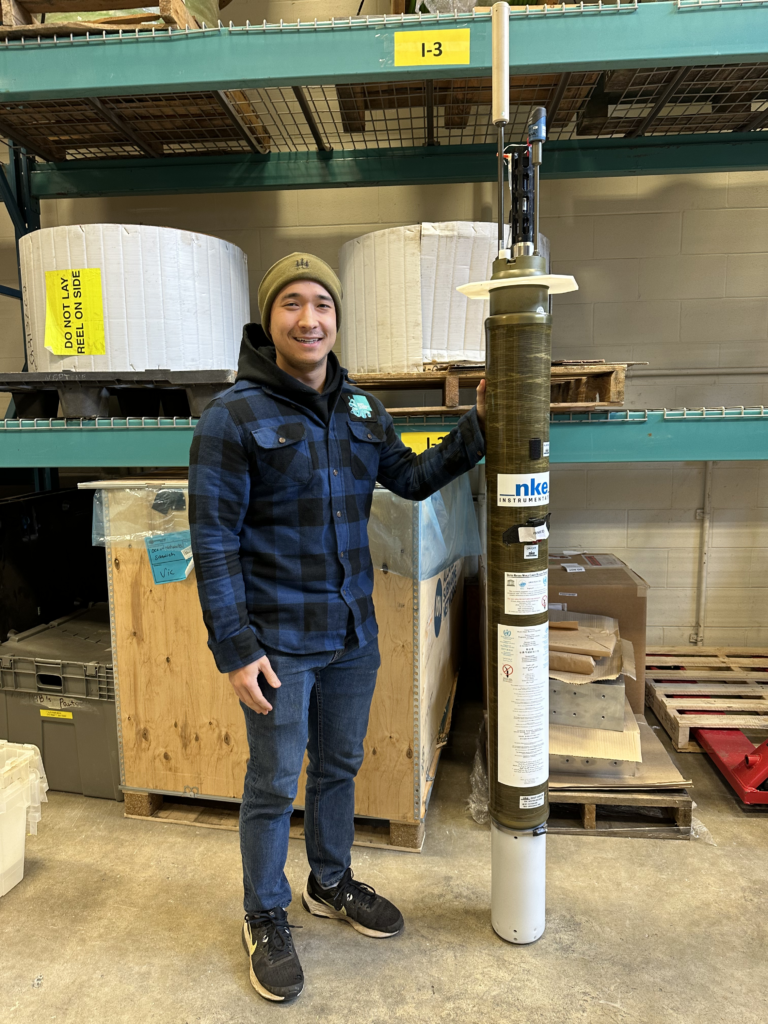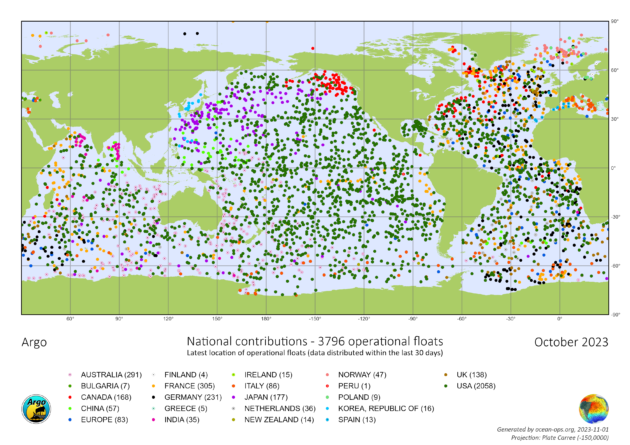
Victoria university develops enhanced climate tracking technology
December 6, 2023
By Aquaculture North America staff
 Albert Ruskey, ONC project engineer EIT, with a NKE Deep ARVORS profiling float. (Photo: Ocean Networks Canada)
Albert Ruskey, ONC project engineer EIT, with a NKE Deep ARVORS profiling float. (Photo: Ocean Networks Canada) A research initiative by the University of Victoria in B.C. is expanding its climate tracking in the northeast Pacific Ocean
Ocean Networks Canada (ONC) is an observing facility owned by the university that is dedicated to collecting ocean data in the Pacific, Atlantic and Arctic coasts of Canada with the aim of “accelerating scientific discovery and making possible services and solutions for a resilient planet.”
Recently, the university announced its intention to expand its reach of Pacific Ocean monitoring with the deployment of new deep-sea Argo floats.
NKE Deep ARVORs floats have a vertical range of four kilometres—double the depth of most other operational floats. The battery-powered float devices travel up and down using a mechanism that controls its buoyancy. When the float breaches the surface, it transmits the collected data via satellite to its global Argo data portal.
ONC’s floats are the first to explore the northeast Pacific region below two-kilometre depths while equipped with a sensor that measures dissolved oxygen.

National contribution to the International Argo Program as of October 2023. (Photo: The Argo Program)
“The deep waters of the northeast Pacific have been losing oxygen due to climate change,” said ONC senior staff scientist Kohen Bauer. “The Deep Argo floats are providing measurements of dissolved oxygen more frequently and over a larger area than previously established, allowing us to better monitor critical changes in environmental conditions.”
Five floats were deployed in the northeast Pacific in 2023, during expeditions led by Fisheries and Oceans Canada. The metrics captured by the floats are dissolved oxygen, temperature (heat storage), seawater salinity, pressure and the amount of oxygen gas in seawater, which most marine species rely on to survive.
“With early detection, there is potential for protecting coastal aquaculture industry resources before low oxygen conditions emerge,” said ONC President and CEO Kate Moran. “NEPTUNE observatory, for example, helped identify an extreme low oxygen (i.e. hypoxia) event in August 2021 along the southern British Columbia continental shelf. The addition of the deep floats will give us a wider geographic picture of these types of events.”
The data from the ONC floats are contributing to Argo Canada and are accessible via the international Argo program, which is bringing more certainty to global heat storage estimates and therefore projections of sea level rise.
Advertisement
- USDA to conduct 2023 census of aquaculture
- ‘False’ advertising claims lead to removal of anti-salmon farming billboards in Ottawa





